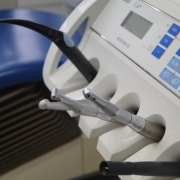Tips For Managing Post-op Tooth Pain Without Medication
Experiencing discomfort after dental surgery is common, but medication isn’t for everyone. You may be averse to taking medication for one reason or another. That’s okay. You needn’t justify your decision to anyone. At the same time, you will have some pain management to take care of, so here are some tips for managing post-op pain from your dentist in Thornton, CO at Colorado Root Canal Specialist.
Try a Cold Compress
Applying a cold compress to the outside of your cheek near the surgical site can reduce swelling and numb the area. Use an ice pack or a cloth-wrapped bag of ice, applying it in 15-minute intervals to avoid skin irritation. If you don’t have ice or an ice pack, you can simply wet a washrag and pop it into the freezer for a few minutes until it’s cold enough to give you some relief.
Try a Heating Pad
Sometimes pain responds better to heat than cold. If the cold compress was a fail, try a heating pad. Put it on low or medium and hold it up against the cheek where the pain is.
Rinse with Warm Salt Water
If you can manage it, saltwater rinses are a gentle and effective way to cleanse the surgical area and reduce inflammation. Mix half a teaspoon of salt in a glass of warm water and swish it gently around your mouth. Don’t swish too hard because that could disrupt the healing.
Use Distraction
Often, pain is worse because you’re too focused on it. Try losing yourself in a good book or a good movie. Let yourself really get into it so you can forget about the pain for a little bit.
By incorporating these tips into your recovery plan, you can effectively manage post-op tooth pain and support the healing process after a root canal in Thornton, CO without medication.











